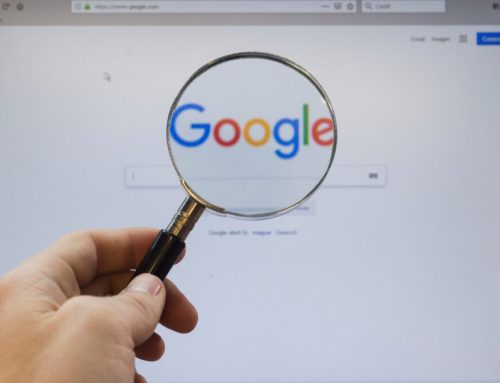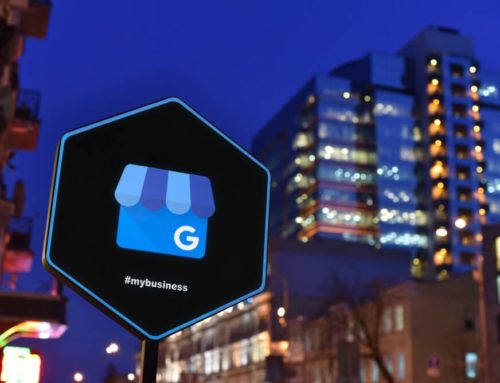Google Adwords is one of those marketing channels that just keeps expanding.
According to WebVisible’s survey, over 85% of users use the Internet to find local businesses and make purchasing decisions, while businesses earn 2$ on average for every 1$ they spend on Google ads.
What does this mean for businesses?
It means Google Adwords is still the most ROI-friendly marketing platform for businesses. Getting to that sweet spot of ROI with Adwords is a bit tricky. If you’re running Ads or thinking about using them for your business, I’m going to go over some tips that will help you maximize ROI on them.
1. Think Beyond the Ad
Everything that goes into your Google Adwords campaign should be optimized, but that also goes beyond the ad. This means that you should optimize the website or the landing page where the ad is sending your customers.
Simply put, an ad is just a part of your customer’s journey, and to close the deal, they actually have to convert on your website. This means that you should pay the same amount of focus, if not more, to the actual landing page as well as your ad.
2. Perfect the Copy
The wording of your ad is tremendously important and believe it or not, it has a direct impact on the ROI of your ads. This absolutely makes sense, because when users search for businesses, product or services, the only information they have at their disposal after a Google search is a snippet of text. Therefore, it’s very worthwhile to make this copy text the best it can possibly be.
Here are some of the online services and tools that you can use to create the perfect Google ad copy:
- ClassyEssay — a database of writers that can craft your Google ad texts
- Readable — to check for readability of your ad copy
- SmallSEOTools — a collection of tools that you can use to check whether your texts are SEO-friendly
- TopEssayWriting — writing service for all kinds of needs, including Google Adwords
- Freelancer — a database of freelancers who can help you perfect the text of your Google ad
3. Ad Quality + Landing Page Relevance
Something that can be detrimental to ROI in your Google Ad campaigns is when you get a lot of clicks based on the quality of your ad, and then lose all these customers after they arrive on your landing page.
This doesn’t mean that the website or the landing page is not optimized or high-quality (which we talked about in the first point), but it often implies that what you outlined in the ad is not aligned to the actual content of your website. In other words, customers don’t find what they were looking for: you pay for their ad click, but they don’t convert.
“Your ad is not the final destination of your customer’s journey; it’s just a crossroads leading to the next step — the landing page. That’s why your landing page has to be as relevant to the ad as possible to be able to actually capture all those qualified leads”, says Carrie Collins, a writer and marketer at BeGraded.

4. Reduce Your PPC Costs
PPC costs are one of the two components of the equation that calculates the total ROI. Therefore, next to earning as much as possible, you should also aim to invest less to achieve the same results. In the context of Google ad campaigns, this means lowering your cost-per-click.
You should use the insight you have from your metrics to lower the bids for poor-performing keywords and increase investments for those that perform well.
Lowering your costs-per-click is mostly about finding the right keywords, which implies finding a golden mean between competitive keywords and high search volume rates. In other words, you should aim to discover keywords that users search for often, but that is not as competitive.
5. Use Retargeting
Remarketing and retargeting allow you to present ads to users who have already visited your website. For example, if someone abandons their cart on your online store or exits your website without purchasing, remarketing can help you re-connect to them by showing them relevant ads on different devices.
Remarketing is like jet-fuel for increasing ROI. It’s one of the most effective ways to land more conversions with a lower investment amount. It’s also not connected solely to direct sales: with retargeting, you can either increase sales, boost your registration rates or increase brand awareness, depending on your campaign goals.
6. Test, test, test
Finding the right formula to maximize your ROI on Adwords is all about testing. Luckily, Google has its own ad optimization and testing tools that can help you perform quick and easy experiments for lower funds.
For these purposes, Google Optimize is a tool (obviously handy because it comes straight from Google) that can help you measure and optimize the ROI of your campaigns. It allows you to perform A/B testing and multivariate testing and determine which of your ads work the best — you can compare copy texts, keywords, landing pages, and much more.
Conclusion
In a nutshell, Google Ads are definitely still the number 1 ROI-friendly marketing platform, suitable for all types of businesses across all sectors and industries. They are especially useful and efficient for locally-based businesses, who can achieve a high ROI based on low-cost keywords and competition and a high search volume.
The best and smartest way to approach the optimization of your ad ROI is to perform testing and experimenting with lower amounts of money. This way, you can easily scale after you receive the results of your experiments and invest more. If you’re struggling with getting a positive ROI on your ad spend, contact a proven agency for assistance.
SOURCE: Medium










